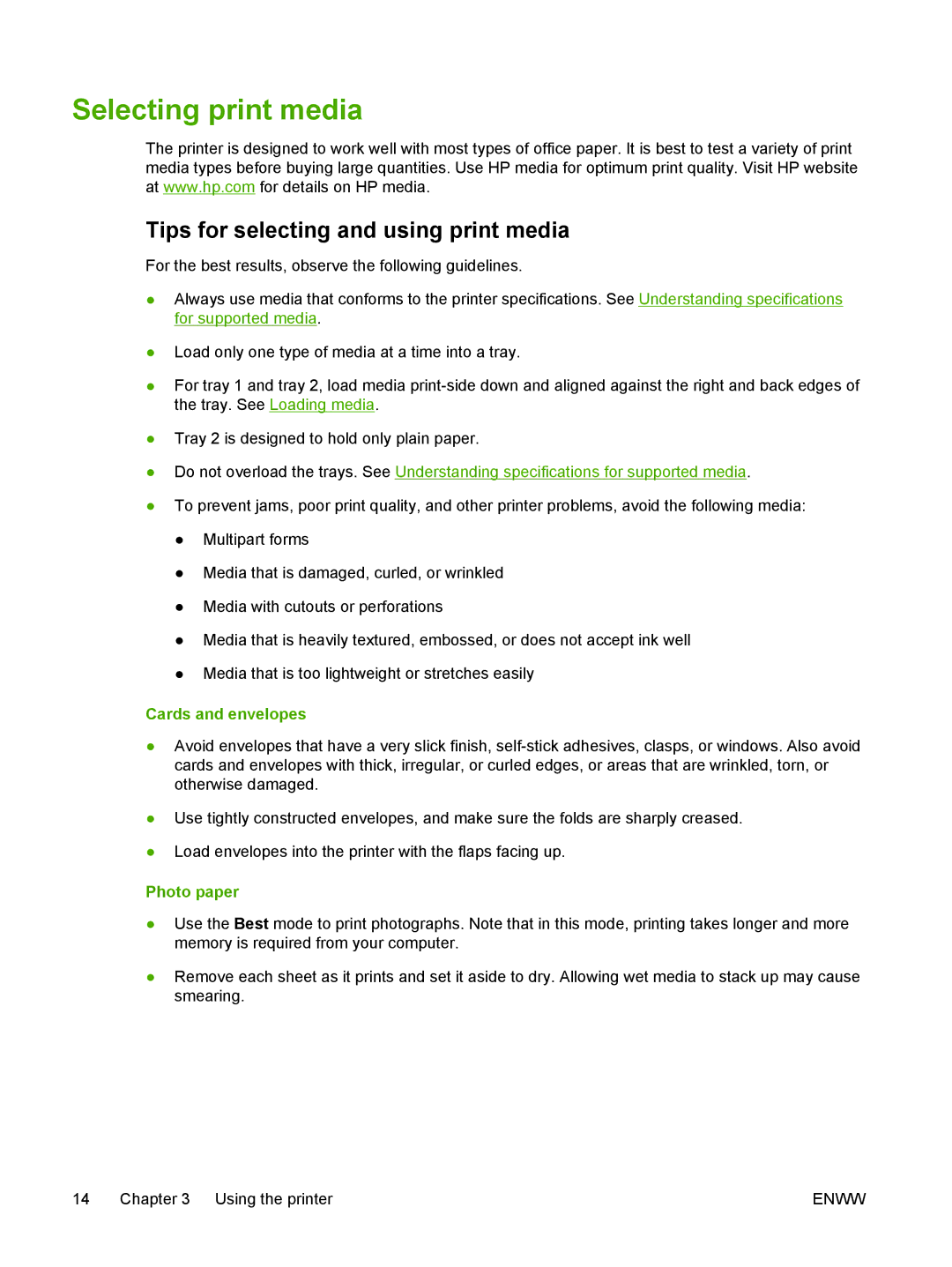Selecting print media
The printer is designed to work well with most types of office paper. It is best to test a variety of print media types before buying large quantities. Use HP media for optimum print quality. Visit HP website at www.hp.com for details on HP media.
Tips for selecting and using print media
For the best results, observe the following guidelines.
●Always use media that conforms to the printer specifications. See Understanding specifications for supported media.
●Load only one type of media at a time into a tray.
●For tray 1 and tray 2, load media
●Tray 2 is designed to hold only plain paper.
●Do not overload the trays. See Understanding specifications for supported media.
●To prevent jams, poor print quality, and other printer problems, avoid the following media:
●Multipart forms
●Media that is damaged, curled, or wrinkled
●Media with cutouts or perforations
●Media that is heavily textured, embossed, or does not accept ink well
●Media that is too lightweight or stretches easily
Cards and envelopes
●Avoid envelopes that have a very slick finish,
●Use tightly constructed envelopes, and make sure the folds are sharply creased.
●Load envelopes into the printer with the flaps facing up.
Photo paper
●Use the Best mode to print photographs. Note that in this mode, printing takes longer and more memory is required from your computer.
●Remove each sheet as it prints and set it aside to dry. Allowing wet media to stack up may cause smearing.
14 Chapter 3 Using the printer | ENWW |
